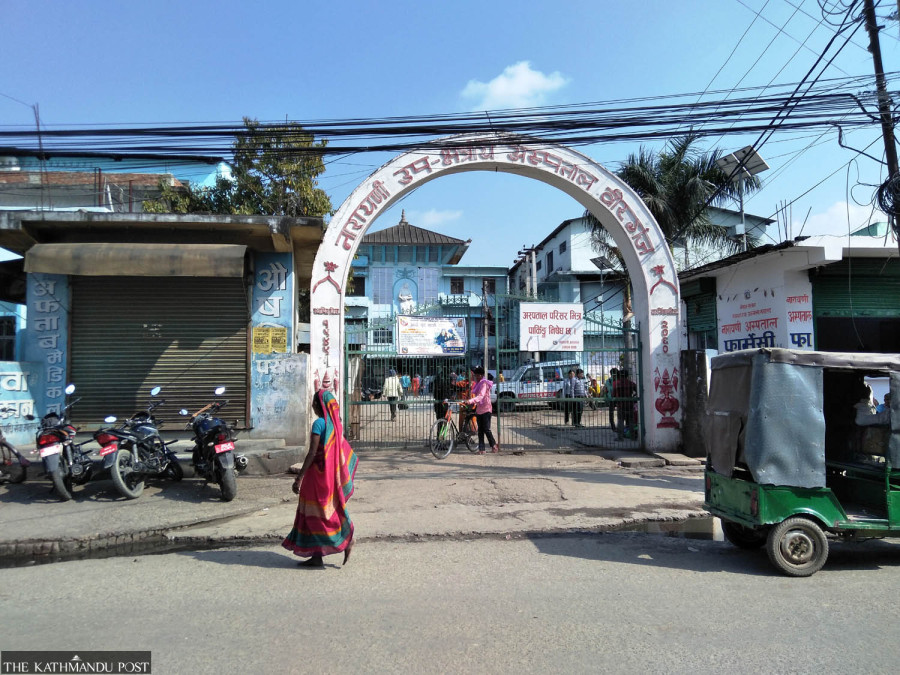Health
Running OPD 12 hours a day ‘easier said than done’
Doctors at major hospitals, however, say the plan, which will help reduce hospitals’ patient overload, is viable.
Arjun Poudel
In the policies and programmes for the upcoming fiscal year 2023-2024 presented by the President in the joint meeting of Parliament on Friday, it was mentioned that the government would extend outpatient department services (OPD) at state-run health facilities from 8 am to 8 pm.
The policies and programmes of the fiscal year 2017-2018 too had stated that the government would run extended outpatient services.
So, this is not the first government to make such an announcement. Successive governments formed after the country became a republic in 2008 as well as the earlier governments and even the kings, when they enjoyed absolute power, had tried to run extended services at state-run health facilities, but none succeeded.
“Running out-patient department services for 12 hours—8 am to 8 pm—is easier said than done. Several such plans and decisions taken in the past have not been implemented,” said Dr Baburam Marasini, former director at the Epidemiology and Disease Control Division. “Even kings, when they were all powerful, tried to improve the services at Bir Hospital some 40 years ago, but they didn’t succeed.”
Most doctors the Post talked to agreed that extending OPD hours is a very good idea that will not only help lessen patient pressure at state-run health facilities, but also provide them relief from exorbitant charges at private health facilities. Many poor patients who can’t afford private healthcare are forced to wait for services at state-run health facilities and often suffer for months and sometimes years.
“The concept is very good and also doable, but successive governments failed to implement it due to lack of strong willpower and thorough planning which could have sustained it,” said Marasini.
In Nepal, Patan Hospital has been running extended services for years. The hospital provides regular services from 9 am to 4 pm. By taking a ticket paying Rs75, a patient can get examined at the hospital’s outpatient department. But those seeking extended care, after the hospital’s regular duty hours after 4 pm, have to pay Rs500.
“The doctors who examine the patients for an extended period get 70 percent of the examination fee while the support staff, including nurses, get the remaining 30 percent,” said Dr Ravi Shakya, director at the Patan Hospital. “In our hospital too, there are some senior doctors who prefer to serve in private hospitals and clinics after their regular duty hours and we do not force them.”
The hospital administration said that there are a sufficient number of doctors to provide the hospital’s extended service. Patients can choose doctors and avail of their services during their extended duty hours.
Doctors serving in the big hospitals said the extended services can be started from hospitals under the federal government that have a sufficient number of human resources and equipment to provide the extended services.
“When Patan Hospital and the National Trauma Centre can provide extended services, the other hospitals too could do the same,” said Dr Santosh Poudel, director at the Bir Hospital. “What is needed is that the hospital’s services be divided into two parts—regular and extended—and be made optional. There are many doctors who wish to serve during extended hours.”
According to Poudel, hospitals should be allowed to charge patients additional amounts for services provided during extended hours and the doctors, too, should be allowed to take additional amounts.
“A hospital will get what it normally gets for its regular services, and the doctors will get the additional amount charged from the patients,” said Poudel. “The government has to provide an additional amount to the support staff too—nurses, lab technicians and others.”
Most private hospitals, nursing homes and clinics around the country have been run by doctors serving at state-run hospitals. Many senior doctors serving at state-run hospitals may not agree to serve during the extended duty hours as they are already earning handsome amounts from private health institutions. Doctors serving at private health facilities too have recently increased their consultation fees.
Poudel concedes that many doctors serving at Bir Hospital also serve at private health centres and it is not easy to persuade senior doctors to serve extra hours at hospitals. He, however, said there are many doctors who wish to serve if the extended services were started.
Every day, around 3,000 patients seek outpatient services at the Bir Hospital. Thousands of patients, especially those who cannot afford expensive treatment at private healthcare facilities, visit state-run hospitals where services are provided at comparatively lower rates.
Meanwhile, the Nepal Medical Association, an umbrella organisation of medical doctors, said the government itself should be clear and make adequate preparations for extending OPD services at state-run health facilities.
“We are not against the government decision, but the services should be made optional. No one should be forced to serve during extended hours,” said Dr Badri Rijal, senior vice chairman of the association. “The issue is of not only holding doctors at their designated hospitals for extra hours. The services of extended hours should be made effective and for that, a lot of things need to be done.” He didn’t elaborate.
Doctors say hospital services—laboratory, radiology, nursing services, and operation theatres—should also run for extended hours. If the patients are not charged additionally for the extended hours, the government has to bear the cost of services of the hospital staffers for those extra hours.
“Hospitals should have sufficient vacant beds for the doctors to admit patients,” Rijal said. “Running extended services with the existing human resources is also not possible.”




 14.24°C Kathmandu
14.24°C Kathmandu















